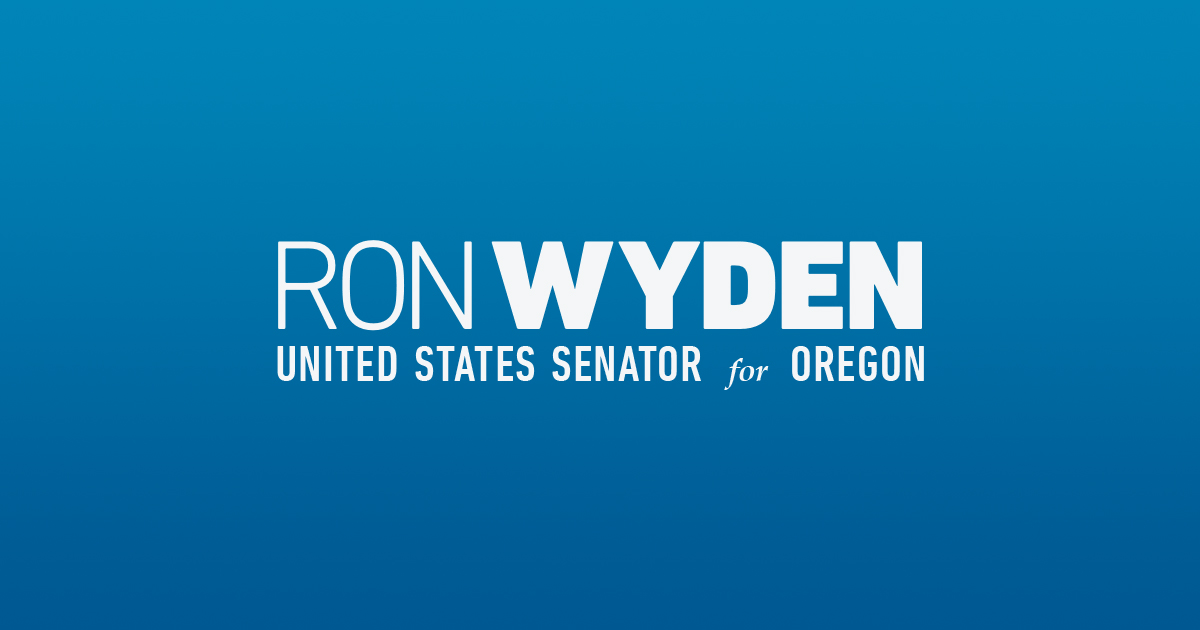Source: United States Senator Ron Wyden (D-Ore)
June 28, 2021
Bill Defends Reporters’ Communication Records Against Government Seizure To Protect Confidential Sources and Promote Accountability
Washington, D.C. – U.S. Senator Ron Wyden, D-Ore., released new legislation to protect reporters and journalists against unnecessary government surveillance that can chill First Amendment activities.
Wyden proposed these new legal restrictions on government surveillance of reporters following recent revelations about the Trump administration’s abusive, politicized surveillance of reporters at CNN, The New York Times and The Washington Post.
“The Trump Administration spied on reporters it suspected of no crimes in its hunt to identify their sources and prevent the American people from learning the truth about Trump’s lawlessness and corruption. President Biden and Attorney General Garland have pledged to end these surveillance abuses, but the new policies can be reversed by future administrations,” Wyden said. “There need to be clear rules protecting reporters from government surveillance written into black-letter law. My legislation creates strong protections for reporters, with common sense exceptions for cases when the government truly needs information immediately.”
The Protect Reporters from Excessive State Suppression (PRESS) Act ensures reporters cannot be compelled by the government to disclose their confidential sources or research files, and also protects their data held by third parties like phone and internet companies from being secretly seized by the government without the opportunity to challenge those demands in court. The bill shields journalists’ communications records, such as those that DOJ obtained about reporters at CNN, the Washington Post, and New York Times from the government, with narrow exceptions for terrorism and threat of imminent violence or harm.
While 48 states and the District of Columbia have some form of shield law or reporters privilege, protections vary significantly, and there is no federal shield law, and the state laws do not apply to investigations by federal agencies, such as DOJ. Importantly, there are currently no legal restrictions that prevent the government from secretly obtaining a reporters’ records directly from phone companies, email providers and other third parties in order to identify their sources.
Read the bill text here and a summary here.
The PRESS Act is endorsed by the News Media Alliance, Radio Television Digital News Association, Society of Professional Journalists, National Association of Broadcasters and News Leaders Association.
Gordon Smith, President of the National Association of Broadcasters: “NAB salutes Senator Wyden for his commitment to the enactment of a federal media shield law. Broadcast journalists are dedicated to keeping Americans informed with timely investigative reporting on issues of critical importance to their local communities and our nation. NAB looks forward to continuing to work with Congress to ensure journalists have the ability to report the news without putting themselves or their sources at risk.”
David Chavern, News Media Alliance President and CEO: “Our nation’s history has shown that confidential sources are often crucial to helping journalists shed light on important public matters critical to a strong democracy. We are grateful to Senator Wyden for his leadership on this issue and we look forward to working with him and others in Congress to enact this important legislation.”
Dan Shelley, Radio Television Digital News Association Executive Director and Chief Operating Officer: “The Radio Television Digital News Association is proud to support the PRESS Act because it helps protect citizens’ need to know what their government is doing in their name. While the Act itself would greatly restrict the government’s ability to obtain from journalists the identities of confidential news sources, the true beneficiaries would be members of the public, whom journalists serve by seeking and reporting the truth without fear or favor.
